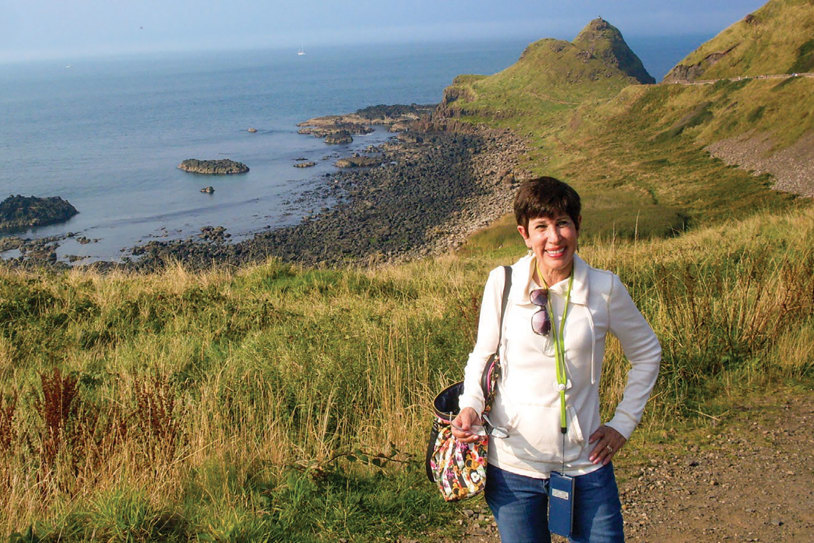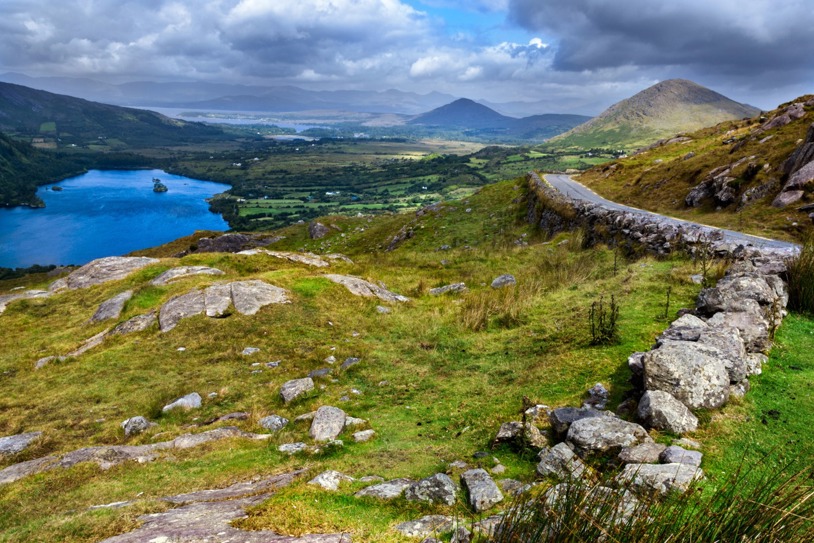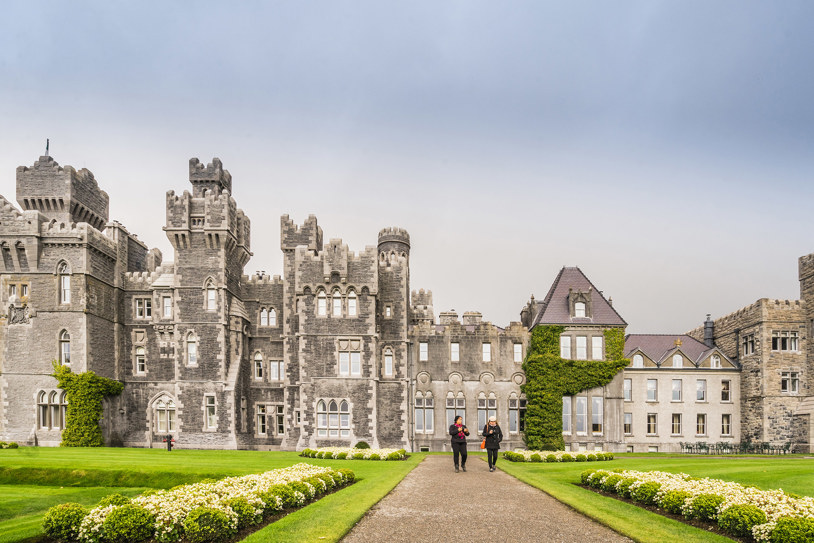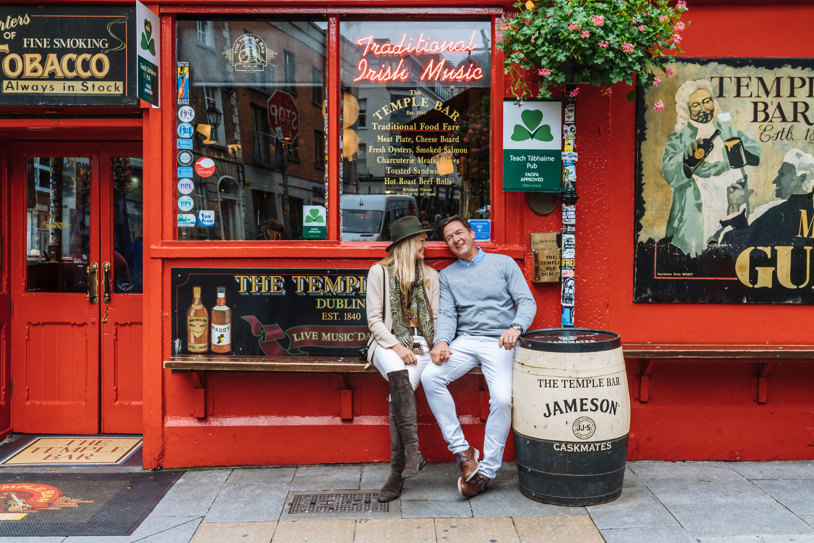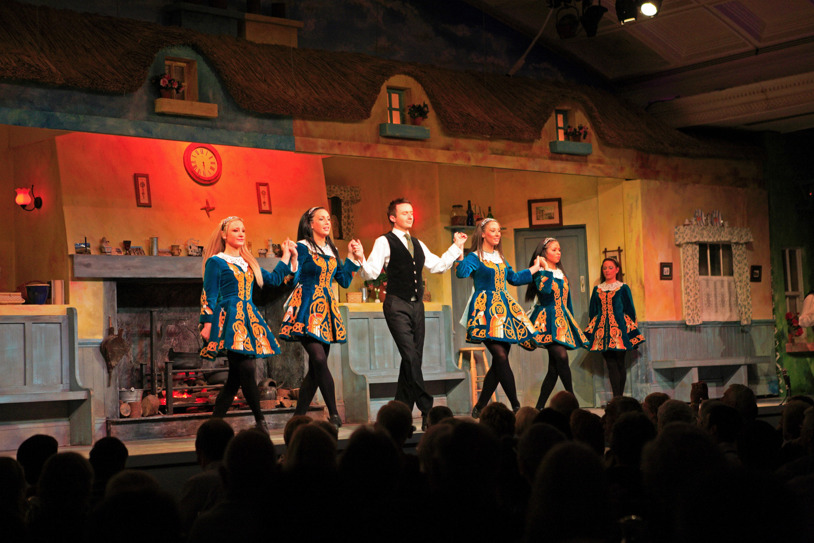Who can resist the charm of the Emerald Isle? The multi-hued green landscapes, the dramatic seaside cliffs, the hospitable locals, the lively music, and the rich history. Experience it all on a tour of Ireland.
About Us
For more than 50 years, Grand European Travel has been providing a wonderfully simple, and genuinely personal, way to travel.
Meet Our Team
Our Travel Specialists make planning your trip fun and hassle free
Guided Vacations
Top 10 advantages of taking a guided tour
Guest Reviews
As you plan your trip, read our unedited guest reviews
Travel Insurance
Protect your vacation with travel insurance.
Responsible Travel
Powered by our not-for-profit foundation, TreadRight
Current Offers
From Last Minute Deals to limited time promotions, see all offers.
Big Travel Sale
SAVE up to 15% on 2026 Tours
Double Past Traveler
Double Global Tour Rewards on select trips
Uniworld Anniversary Sale
Save up to 30% on river cruises
GETAWAY Deals
Great deals on last minute travel
AARP Member Benefits
Enjoy exclusive savings on guided tours and river cruises
2027 Cruise Savings
Early Booking Savings up to 20%
Solo Traveler Deals
2026 Single Supplement Cruise Discounts
A History of
Irish Dance

While many people associate Irish dancing with elaborate stage shows like Riverdance, there are a number of traditional Irish dances that can be found in communities, pubs, and parties all over Ireland.
Irish dance is really an amalgamation of cultural influences. When they settled Ireland, the Druids, Celts, and Normans each introduced their own social and religious rituals. One Druid ritual involved circular dances around sacred trees to honor nature and the sun. Celtic communities held celebrations that they called a “feis”, which included sports, storytelling, and political discussions, as well as folk music and dancing.
The Normans brought the “Carol” dance, where a circle of dancers followed the lead of one central singer—the first written record of the Carol is from 1413.
The 18th century saw the emergence of Dance Masters. These teacher-choreographers traveled from town to town, providing dance lessons to the local community. Dance Masters were held in high regard and it was a significant occasion when one came to town. They would often stay with a local family—giving free lessons in return for room and board—and use a local barn as a teaching and performance space. The best dancers were allowed to perform solos, and rivalries emerged between different Dance Masters. Today’s Irish dance competitions emerged from these traditions.
The Dance Masters’ most enduring legacy was that by traveling and teaching across the countryside, they helped to spread and popularize folk dancing throughout Ireland. The formation of the Gaelic League in 1893 was another significant event. The League organized dance competitions as a key part of their mission to preserve Irish culture. This preceded the Irish Dancing Commission, which took the League’s mission a step further. Officially established in 1930, and still in existence today, the Commission organizes Irish dance competitions around the world as well as standardizing qualifications for teachers.
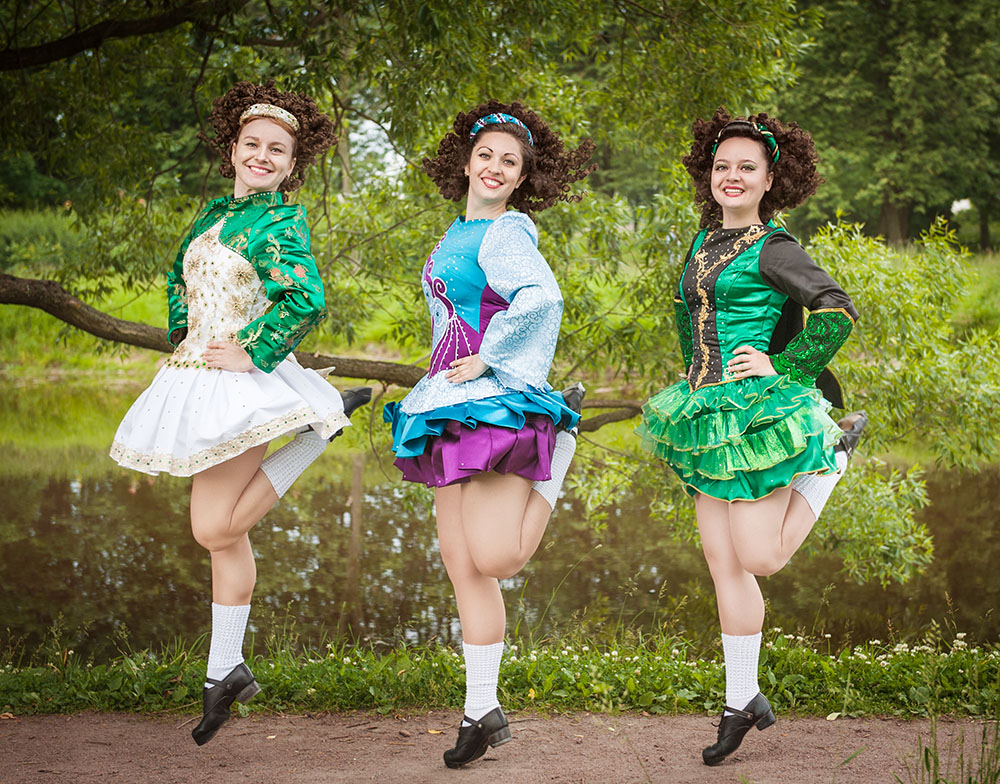
Step dancing is the most common dance form seen in competitions. Teams of 8 or 16 dancers perform original choreographed pieces, and dancers wear intricate, sequined outfits and curly wigs. Soft shoes—picture ballet slippers—are usually worn for team dances, while hard shoes—picture tap shoes—are worn for solo performances. Irish stepdance evolved from “old style” sean nós dances. These were done in an improvisational style, with limited upper body movement and quick feet tapping in time with the music.
Céilís are traditional Irish group dances. The term céilí used to refer to social gatherings, similar to a feis, but has evolved to refer specifically to folk dancing. Céilís can be performed by anywhere from 2 to 16 dancers.
Sean nós dances are usually performed solo within a confined space since dancers used to stand on a wooden platform or barrel top. Hard shoes on the wooden surface create a rhythmic clicking sound.
Set dances are more structured than céilís—think of American square dancing. Groups of four couples form squares and perform a series of dances, occasionally swapping sides or partners.
The great thing about Irish dancing is that anyone can learn it, no matter their age or experience level. With so many different variations, there’s a dance out there for everyone. It’s always a fun social activity that honors Irish history and tradition.
Amazing Ireland
Day 1
Welcome to the Emerald IsleDay 2
Onwards to Beautiful BelfastDay 3
BelfastDay 4
Venture to the Giant’s Causeway and on to Derry/Londonderry and County DonegalDay 5
Admire Belleek’s Famous PotteryDay 6
Pilgrimage to Knock and on to GalwayDay 7
Admire Stunning ConnemaraDay 8
Explore the Cliffs of Moher and KillarneyDay 9
A Day on the Ring of KerryDay 10
See the Sights in Blarney, Cork and WaterfordDay 11
Uncover the Treasures of KilkennyDay 12
Venture to Wexford and Return to DublinDay 13
Discover Diverse DublinDay 14
Farewell Ireland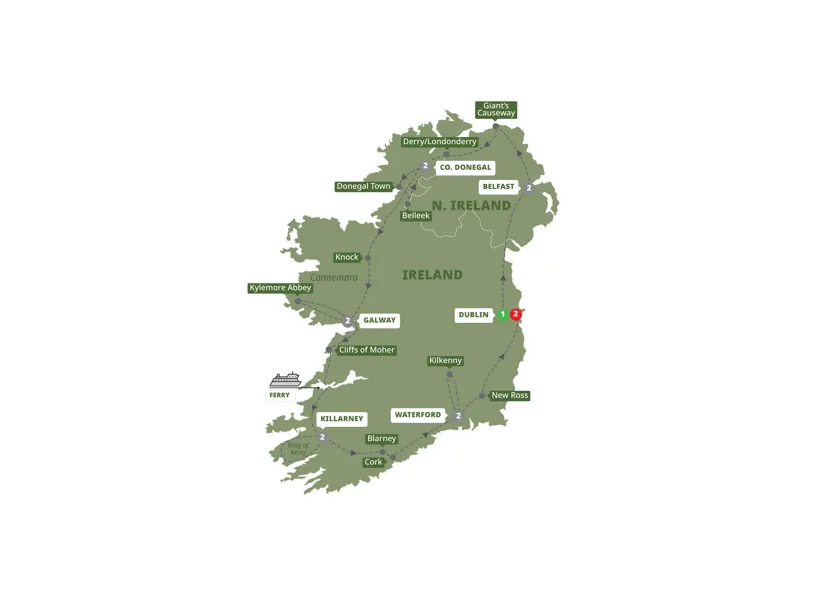
Irish Experience
Day 1
Welcome to IrelandDay 2
Journey to Colorful BelfastDay 3
Venture to the Giant’s Causeway and on to Derry/LondonderryDay 4
Discover Derry/Londonderry’s PastDay 5
Onwards to Scenic GalwayDay 6
Connemara ExcursionDay 7
Explore the Cliffs of Moher and KillarneyDay 8
A Day on the Ring of KerryDay 9
Off to Blarney, Waterford and KilkennyDay 10
Through County Wicklow’s Countryside to DublinDay 11
Farewell Dublin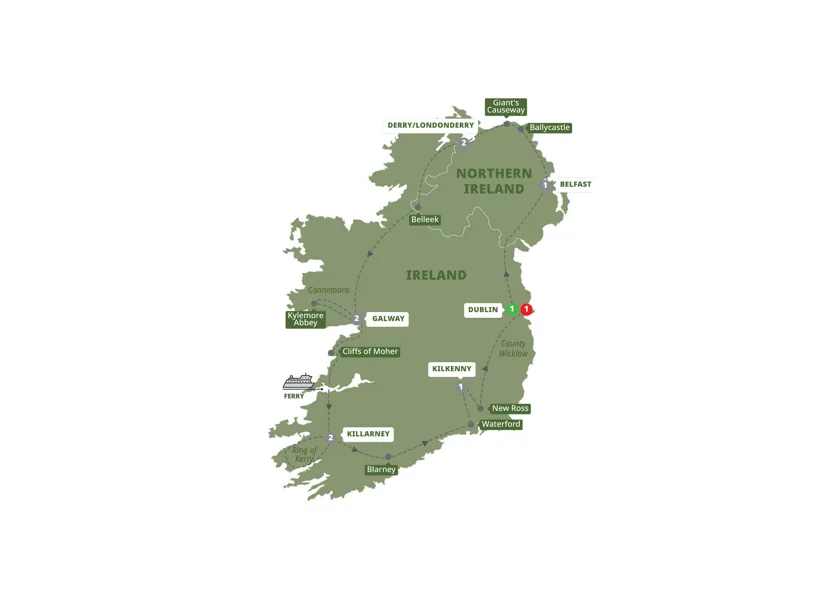
Irish Highlights
Day 1
Welcome to the Emerald IsleDay 2
Onwards to LimerickDay 3
Experience the Iconic Cliffs of Moher and on to KillarneyDay 4
A Scenic Day on the Ring of KerryDay 5
Explore Blarney and Journey to WaterfordDay 6
Through County Wicklow’s Countryside to DublinDay 7
Farewell Ireland
Enchanting Ireland
Day 1
Hello DublinDay 2
Experience Irish history and on to SligoDay 3
Journey to Westport and GalwayDay 4
The Iconic Cliffs of Moher and Onwards to KillarneyDay 5
A Day on the Ring of KerryDay 6
Venture to Blarney and Medieval KilkennyDay 7
Return to Lively DublinDay 8
Farewell Ireland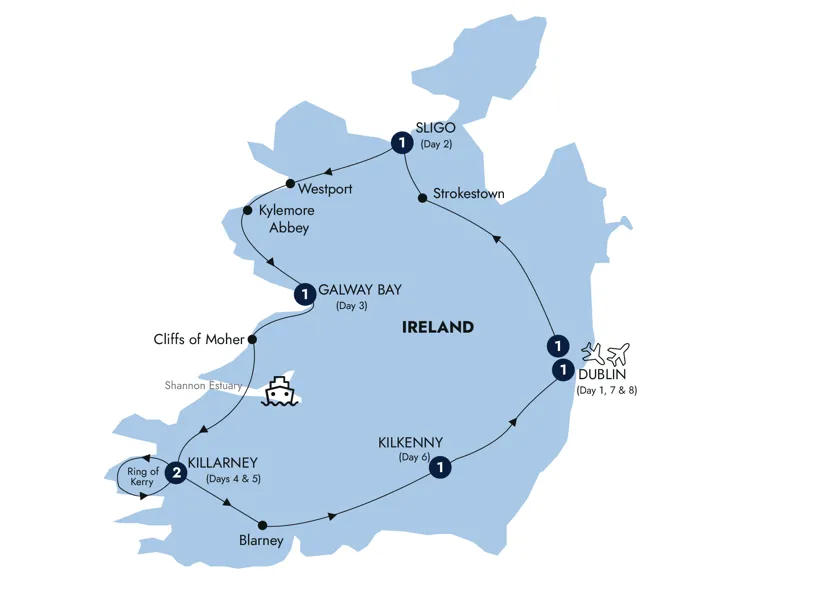
Ultimate Ireland
Day 1
Welcome to Energetic BelfastDay 2
Highlights of BelfastDay 3
Giant's Causeway and LondonderryDay 4
Strangford Lough and Vibrant DublinDay 5
A Truly Irish ExperienceDay 6
Glendalough to KilkennyDay 7
Banter in BlarneyDay 8
Scenic Ring of KerryDay 9
Cliffs of MoherDay 10
Galway to DonegalDay 11
Majestic Lough Eske CastleDay 12
Depart Belfast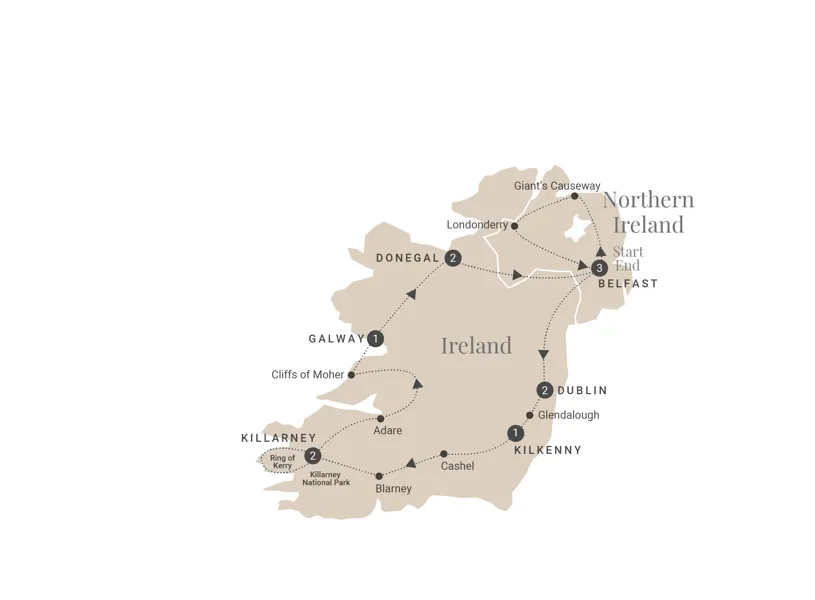
Best of Ireland
Day 1
Welcome to IrelandDay 2
Through the Scenic County Wicklow and Waterford to KilkennyDay 3
Journey to Blarney and on to KillarneyDay 4
A Day on the Ring of KerryDay 5
Onwards to Lively LimerickDay 6
Admire the Cliffs of Moher and Onwards to GalwayDay 7
A Day Exploring Stunning ConnemaraDay 8
A Pilgrimage to Knock and on to SligoDay 9
Return to Lively DublinDay 10
Farewell Ireland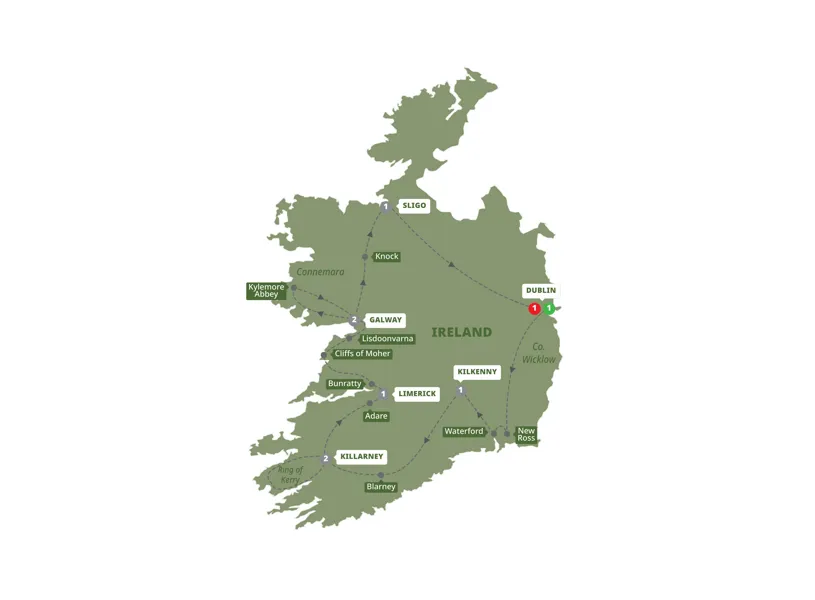
Country Roads of Ireland
Day 1
Welcome to DublinDay 2
In Dublin’s Fair CityDay 3
A Journey from Dublin to CorkDay 4
Across the Mountains to KillarneyDay 5
Ring of Kerry ExperienceDay 6
Around the Dingle PeninsulaDay 7
The Cliffs of Moher and GalwayDay 8
Free day Galway or Aran IslandsDay 9
Explore Derry/LondonderryDay 10
Walk in the Giant’s StepsDay 11
The Antrim Coast to BelfastDay 12
Depart Belfast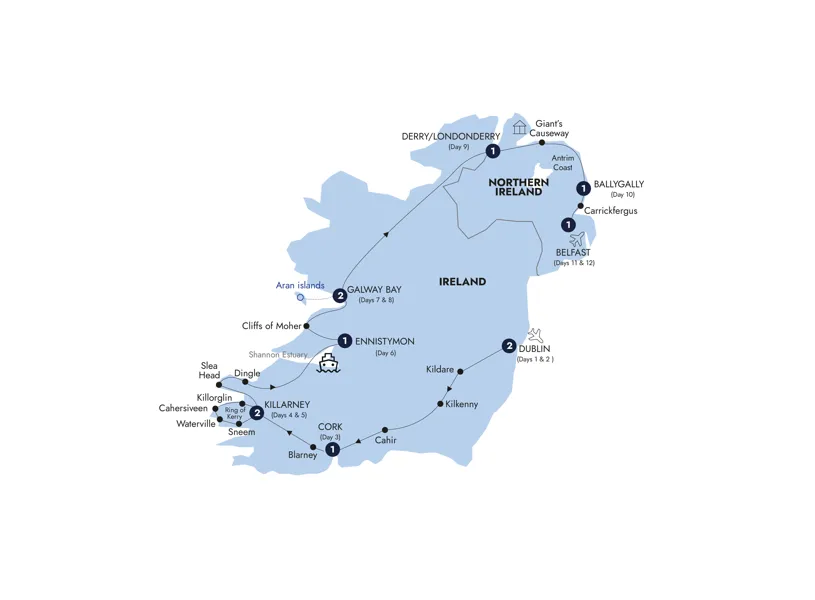
You Might Also Like
Find Your Perfect Destination
 Tap To Call
Tap To Call
 Free Brochure
Free Brochure
Order Your Free Brochure
Sign up to order your FREE travel brochure subscription and get exclusive offers only available to our subscribers
Thanks for signing up to receive our latest brochure. As a subscriber, you'll be the first to receive our new brochures as they are released, plus great deals in your inbox.





